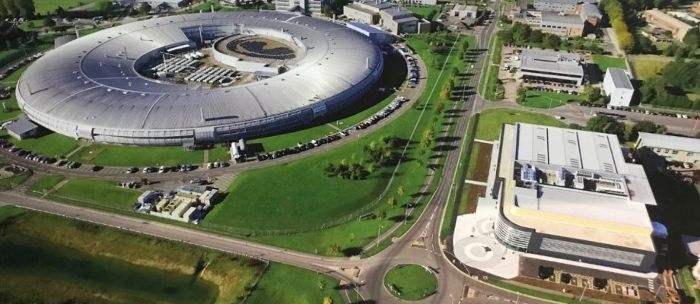UK-based telecommunications company O2 and the UK Space Agency will be supporting ‘Project Darwin’, an ambitious four-year trial program designed to pave the way for next-generation connectivity solutions for connected and autonomous vehicles (CAVs).
The project aims to test new technology and end-to-end connectivity solutions including 5G cellular and satellite communications to ultimately create a new CAV industry vertical. Based at the Harwell Science and Innovation Campus in Oxfordshire, ‘Project Darwin’ will bring together Oxford and Glasgow Universities, Spanish satellite operator Hispasat, start-ups specialized in self-driving mobility solutions and Darwin Innovation Group Oxford, a cutting-edge innovation company connecting terrestrial and satellite communications. From July, the high-level design and definition phase will begin at Harwell to explore key connected vehicle and Vehicle-SIM platforms as well as artificial intelligence (AI) neural network integration. From 2020 the project hopes to be in position to showcase the first ‘proofs of concept’.
The UK trading arm of Spanish telecommunications giant Telefonica, last year O2 conducted research which found that CAVs are expected to generate unprecedented levels of data, 4TB per hour, highlighting the need for projects such as these to explore next-generation connectivity solutions. As part of Project Darwin, an ESA (European Space Agency) ARTES (advanced research in telecommunications Systems) ‘Partner Study’ program will be conducted with UK Government support of £2m (US$2.5m) for the first phase, which will help define all the different elements needed to deliver the larger program. The future of mobility is one of the government’s Industrial Strategy ‘Grand Challenges’ and the UK Space Agency is working closely with Darwin and Telefonica to support this ambition.

“Our world-beating space and auto industries have a proven track record in driving forward pioneering research, while the UK’s satellite services are constantly enhancing services such as the quality of our communications, healthcare and environmental monitoring,” noted UK Business Secretary, Greg Clark. “This new partnership between Government and industry will build on our world-leading reputation in the development and manufacture of satellites even further, to bring together two of the UK’s great strengths; automotive and space. Putting us at the forefront of the next generation of self-driving cars of tomorrow; a key ambition in our modern Industrial Strategy.”
Daniela Petrovic, Darwin Innovation Group co-founder, said, “Our team at Harwell is thrilled to gather key innovation partners like Telefonica, UK Space Agency and ESA, together with a number of start-ups from Oxfordshire with whom we have longstanding relationships, to join forces in this exciting innovation. Our aim is that Mobility-as-a-Service (MaaS) developed by Project Darwin will benefit society in multiple ways: by creating new apprenticeships in this newly developing area, informing policies and regulations related to connected and autonomous vehicles, and creating a new industry vertical.”
Catherine Mealing-Jones, director of growth at the UK Space Agency, commented, “Autonomous vehicles need robust, high-speed mobile data connections to operate effectively. Building the technology to link them to telecoms satellites will allow you to take your car wherever you want to go, and not just to areas with a strong mobile signal.”





